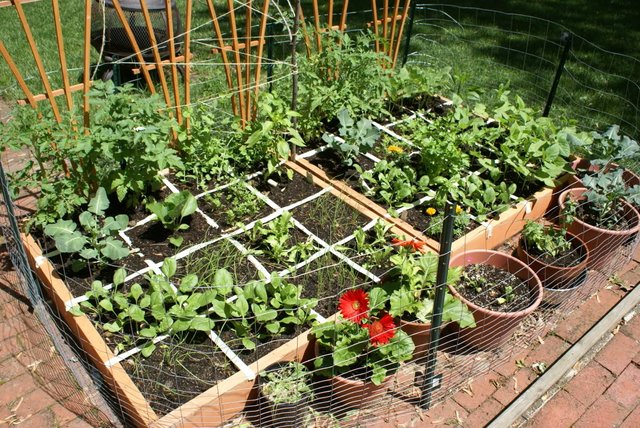Small Scale Gardening Helps Grow Your Own Food Around the Home

Gardening is something that anyone, anywhere can do. All it requires is a little time, some dirt and water, seeds of choice and then some patience and love. Even if you believe you have a "brown thumb" gardening can bring you joy and help you to eat clean, fresh greens, vegetables and fruits.
Gardening doesn't have to be done on large plots of land to be enjoyed. Even folks in small apartments can garden, even if you have limited access to sun light. Most modern lighting can be bright enough to grow plants, and there are many kinds of sun spectrum bulbs available to supplement light if you have limited exposure to natural sunlight.
Many foods can be regrown from scraps - such as green onions, garlic, lettuce, celery and ginger. Even carrot tops can be replanted - not to grow more carrots, but to obtain seed that can then be planted for carrots to grow.
There are a wide variety of vegetation that can be grown, from microgreens and lettuces, to melons and squash, flowers that are as beautiful as they are edible and plants that can help clean the air in your home.
Once you have decided what you wish to grow, getting started is easy. Seeds need rich, loose soil to germinate in. Place soil in a small pot, or prepare your garden area so the soil is loose. Make sure the soil is moist, to offer water to the seeds you are planting. After planting and covering your seed with soil, give them a slow but good watering. Watering newly planted seeds too fast or heavily can cause them to float up on top of the soil instead of remaining under it. Remember to label and mark your plants as many plants can look the same as they begin to grow.
Most seed packets will disclose important information on planting depth, seed spacing and light requirements. If you acquire your seed from a non retail source - such as a family member, friend, seed library or exchange and the specific information isn't available to you, this information is easily found on the internet, using a simple search such as "how to plant ______ seeds". Additionally, there are many books available at the library on gardening and most states have a farm extension agency where master gardeners are usually available to answer questions for the public.
After your seed has been planted, water them every couple of days or so as appropriate, and sit back to watch them grow. Keep weeds at bay by pulling them as they emerge as needed. Always be careful weeding seedlings so you don't accidentally pull out the plants you intend to grow. It may be helpful to learn about the plants you are growing. What do they look like as they emerge or germinate? How long does it take the seed to germinate? After the seedlings have grown some, it is helpful to mulch around them (if in the ground) to help with water retention and also to deter weeds from growing, shading and competing with your plants.
As your plants grow and become larger you will want to keep a close eye on them to keep them watered and weeded. Before you know it, you will be enjoying your own produce!
Congratulations @information-inc! You received a personal award!
Click here to view your Board
Maintaining my large garden is quite a difficult task. Watering it with traditional hoses is quite difficult because they are heavy and constantly twist. But recently I found out about the pocket hose silver bullet, and after reading about it, I realized that it will come in handy in my gardening. I wanted to order it, but I didn’t know if it would suit me, so I turned to pocket hose silver bullet customer service and the company manager advised me on all my questions.